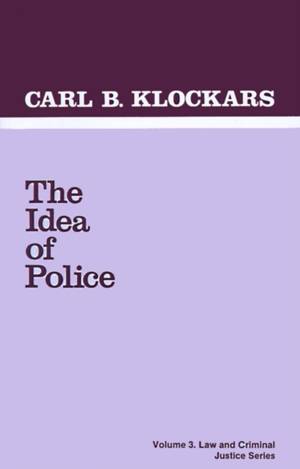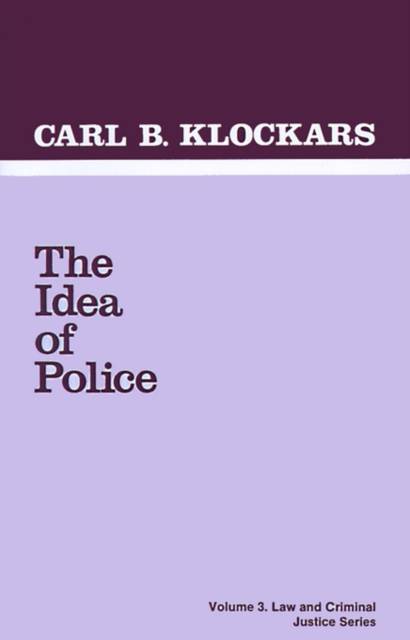
Je cadeautjes zeker op tijd in huis hebben voor de feestdagen? Kom langs in onze winkels en vind het perfecte geschenk!
- Afhalen na 1 uur in een winkel met voorraad
- Gratis thuislevering in België vanaf € 30
- Ruim aanbod met 7 miljoen producten
Je cadeautjes zeker op tijd in huis hebben voor de feestdagen? Kom langs in onze winkels en vind het perfecte geschenk!
- Afhalen na 1 uur in een winkel met voorraad
- Gratis thuislevering in België vanaf € 30
- Ruim aanbod met 7 miljoen producten
Zoeken
€ 177,45
+ 354 punten
Omschrijving
What is the best way to define the police? Why do we have police at all? In modern democracies like the United States and Great Britain, why is most policing done by employees of the state? What is the relationship between police and the law? What makes a good police officer? In addressing these questions, Klockars makes the reader look at the idea of police from a new perspective. First he explains how any definition of police must include the reality of coercive force--the fact that police officers everywhere have the right to "forcibly compel other people to do something." Next he describes the evolution of the police in the United States vis-a-vis the police in Great Britain. After exploring the role of the detective, he highlights the moral conflicts and issues of discretion that police officers face daily. Finally, Klockars examines what makes a good police officer. "An informative introductory resource. . . may prove valuable even to graduate students." --The Social Science Journal
Specificaties
Betrokkenen
- Auteur(s):
- Uitgeverij:
Inhoud
- Aantal bladzijden:
- 160
- Taal:
- Engels
- Reeks:
- Reeksnummer:
- nr. 3
Eigenschappen
- Productcode (EAN):
- 9780803921795
- Verschijningsdatum:
- 1/12/1985
- Uitvoering:
- Paperback
- Formaat:
- Trade paperback (VS)
- Afmetingen:
- 141 mm x 217 mm
- Gewicht:
- 249 g

Alleen bij Standaard Boekhandel
+ 354 punten op je klantenkaart van Standaard Boekhandel
Beoordelingen
We publiceren alleen reviews die voldoen aan de voorwaarden voor reviews. Bekijk onze voorwaarden voor reviews.









